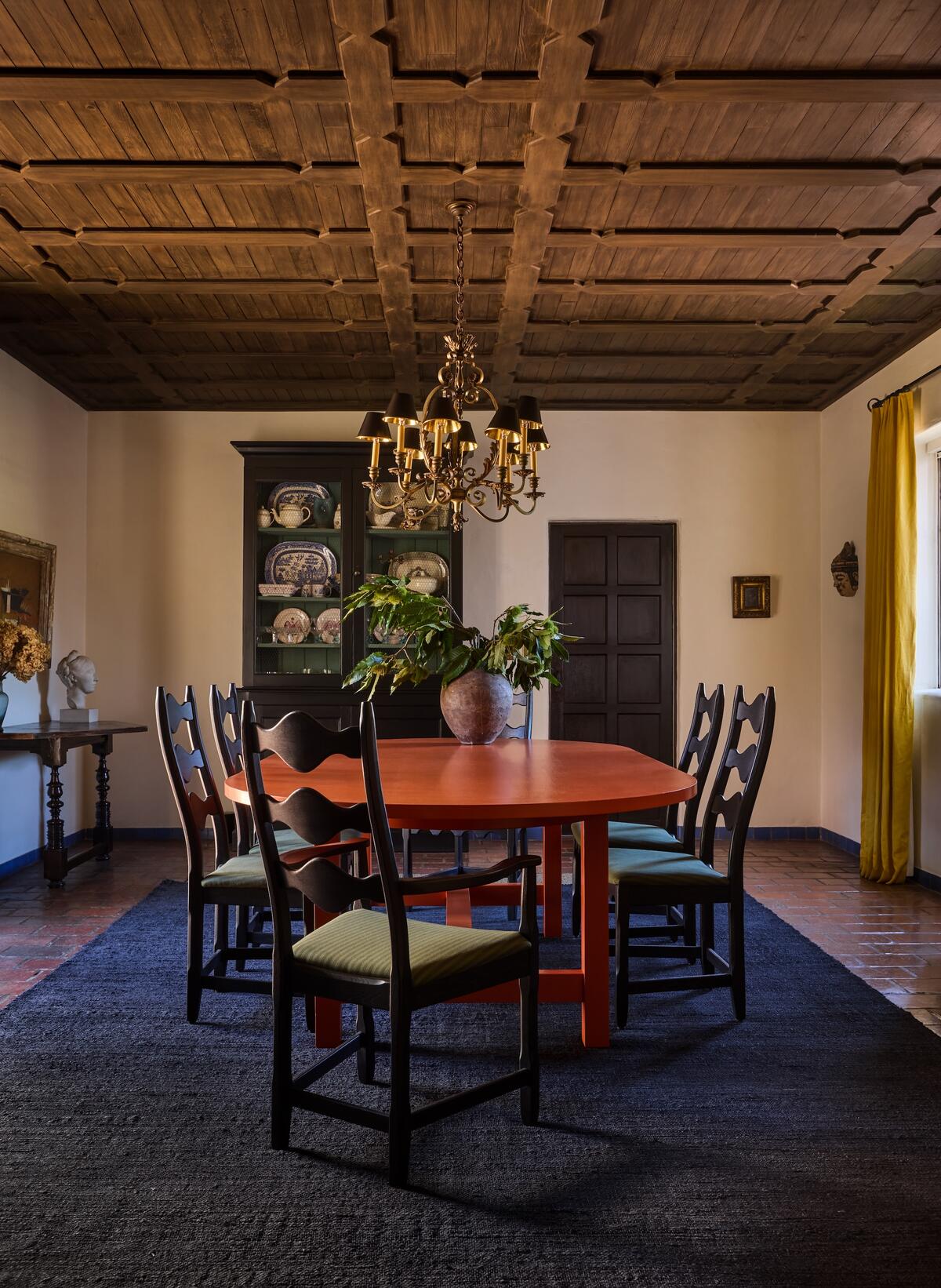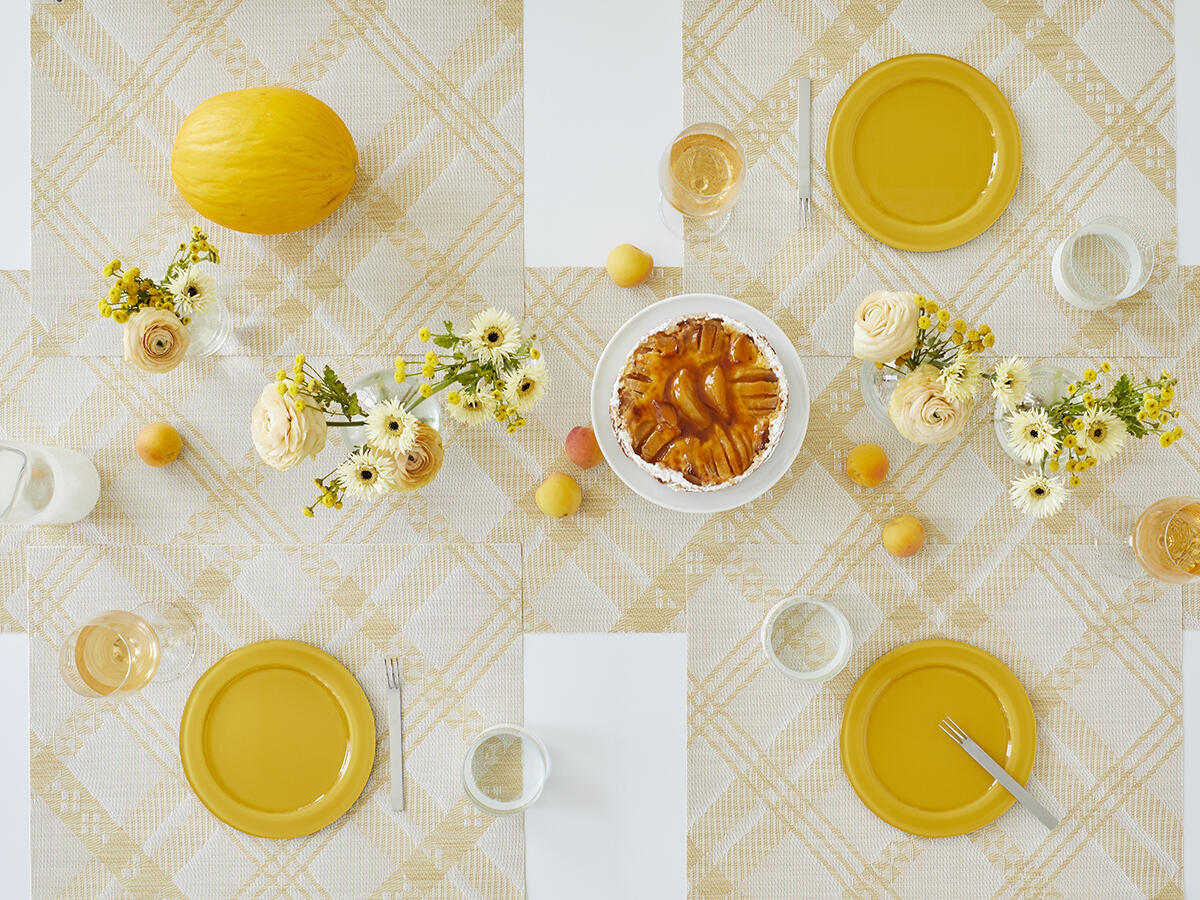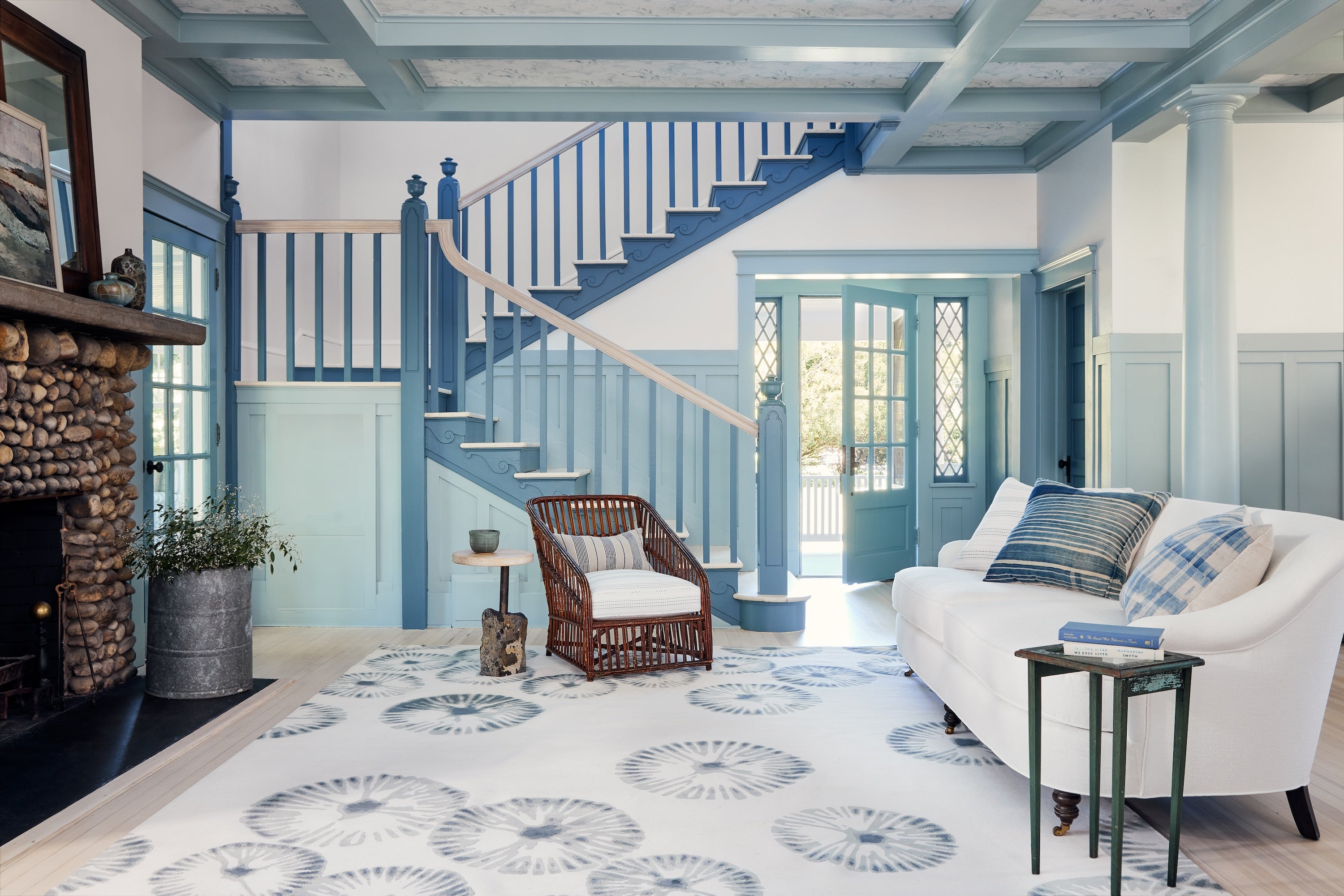This week in design, a number of online shoppers were in for a shock after they ordered a pastry-inspired lamp on Temu—only to be tipped off by a parade of ants that the light fixture was literally a croissant encased in resin. Stay in the know with our weekly roundup of headlines, launches, events, recommended reading and more.
Business News
Interior design and architectural specialist Holladay Design House has acquired Michigan-based furniture manufacturer Kindel Grand Rapids, including the Councill and Karges brands. Founded in 1901 by Charles J. Kindel, the business later transferred ownership to John Fisher, and has remained in the Fisher family for six decades. Following its purchase by Holladay—which owns multiple businesses across the design sector and has a history of revitalizing struggling brands—Kindel has been rebranded as Kindel Karges, and Gretchen Keith (a fifth-generation Karges family member) continues her role as president.
Semi-custom cabinetry company Fabuwood has acquired 56-year-old family-owned brand Plain & Fancy Custom Cabinetry. Through the purchase, select Fabuwood dealer showrooms will carry Plain & Fancy product, with both brands shifting toward a shared dealer network. Along the way, the latter will retain its name and custom offerings, and current president George Achey will remain in his role.
Millionaire renters are on the rise: The share of rental households with annual incomes exceeding $750,000 grew to 10.5 percent from 2018 to 2022, The Wall Street Journal reports. This marks the largest share since the survey began in the mid-2000s—and an increase from 8.4 percent in the previous five-year period. Even in households with a net worth in the top 5 percent, the share of renters rose to its highest level (3.7 percent) since the early 1990s. Though affordability isn’t an issue for that class of buyers, many prefer to keep their funds in the stock market and other investments due to higher home prices and transaction fees, along with rising property taxes and insurance premiums.
More than a year after filing for Chapter 11 bankruptcy and liquidating all its stores, Bed Bath & Beyond will return to the retail landscape in a smaller format starting in 2025, Furniture Today reports. The retailer’s parent company, Beyond Inc., has agreed to license the brand to a company that operates hundreds of 5,000-to-7,000-square-foot locations (forgoing the retailer’s previous 30,000-square-foot model), with the first stores set to open their doors in the U.S. by early next year. Additionally, Retail Dive reports that the company plans to debut stores in Mexico, in a licensing agreement that could eventually include Beyond Inc.’s other brands, Overstock and Zulily among them. Meanwhile, the company will sell branded home textiles through product licensing deals with mass-market retailers, online marketplaces and more.
Home Depot has agreed to pay a settlement of nearly $2 million to resolve a civil complaint alleging the retailer overcharged customers through deceptive pricing, Furniture Today reports. Filed in Los Angeles County, the claim says that Home Depot committed a “scanner violation,” in which items rang up for a higher price than what was advertised on the shelves. Though it did not admit to any wrongdoing, the company agreed to create a price accuracy program (consisting of additional audits and employee training) and pay $1.7 million in penalties and more than $277,000 in litigation costs.

Launches and Collaborations
Chilewich teamed up with Martha Stewart for a collection designed with the lifestyle maven’s own unique blend of tradition and modernity in mind. The 20-piece assortment ranges from tabletop textiles to flat-woven rugs and shag floor mats, for both indoor and outdoor settings.
The Rug Company tapped Jeffrey Alan Marks for a rug collection inspired by the San Diego–based designer’s love of the ocean. Motifs like waves, fishing nets and sand dollars each leave their impression on the Coastal Threads line, which includes four designs: Dunemere, Windansea, Avalon and Miramar.
Design studio Nickey Kehoe has teamed up with Farrow & Ball to release its custom furniture in a selection of the paint brand’s shades. Chosen by co-founders Todd Nickey and Amy Kehoe based on their summer and fall 2024 mood boards, the hues range from the midcentury-inspired olive Bancha to jewel tones like Brinjal and Charlotte’s Locks.
Trend forecasting agency WGSN and its color-coding system Coloro have announced Transformative Teal as the color of the year for 2026. The shade was selected to symbolize redirection—situated between blue and green, it is meant to represent a connection to the earth, with an emphasis on regeneration, resilience and mystery.
Showroom News
Design house Thibaut has announced plans to relocate its Manhattan flagship to a space at the New York Design Center. Located on the 8th floor at 200 Lex, the new 4,200-square-foot showroom will be 20 percent larger than the brand’s current space in the Design & Decoration Building, allowing it to present a wider assortment of its product portfolio. The grand opening is set for 2025.
Showhouses
Today Anthropologie opened its Holiday House showcase, making its debut in a space on Manhattan’s Upper West Side. Created in partnership with New York–based creative director and interior designer Glen Proebstel, the shoppable space will include QR codes that link to product pages for furniture and decor items available through Anthropologie and Terrain. The space will be open through September 22, by appointment only and exclusively to AnthroPerks members.

Recommended Reading
In the decades since online dating services burst onto the scene in the mid-1990s, they’ve transformed the way modern couples come together—the percentage of married couples who met online went from 2 percent in 1998 to nearly 50 percent in 2017. For this week’s HousingNotes newsletter, Jonathan Miller highlights a recent study revealing the economic impact of that shift: At least half of the increase in income inequality since 1980 can be traced to widespread use of dating apps, in which users place a greater focus on income and skill level to find a partner who’s on par with their socioeconomic status—and the aftereffects might have left their mark on the luxury housing market too.
In 2022, the U.S. Energy Department announced a new standard for lightbulb efficiency, setting incandescent bulbs on track to be phased out of production. While LEDs provide a far more energy-friendly alternative, a number of designers fear the technology hasn’t yet caught up to their aesthetic standards—and they’re not willing to compromise their vision in the meantime. For The Washington Post, Kathryn O’Shea-Evans touches base with the design professionals who are searching high and low for inventory to build out their incandescent stockpiles.
In schools across the country, kids are back at their desks—but thanks to a new generation of design-minded teachers, their classrooms are looking a lot more like home. In The Wall Street Journal, Chavie Lieber takes a look inside the spaces designed by Gen Z teachers, who are transforming their rooms into what one administrator described as “West Elm for kids.”
School is also back in session for college students, and some helicopter parents have taken it upon themselves to make sure their children’s dorm rooms look exactly like home. The Cut columnist Kathryn Jezer-Morton explores why parents are gathering in Facebook groups like Dorm Room Mamas (home to nearly 250,000 members) to micromanage their children’s first solo space, while also seeking support from fellow new empty nesters.
Call for Entries
Formica is now accepting submissions for the eighth annual Form Student Innovation Competition. The contest invites students studying architecture and interior design in the U.S., Canada and Mexico to create original designs featuring Formica brand products, this year centered on the theme of “Designing for Wellbeing.” The top three designers will receive cash prizes, and the grand prize winner will join Formica at NeoCon 2025, where their fabricated design will be displayed. To submit an entry before the March 7, 2025, deadline, click here.





























